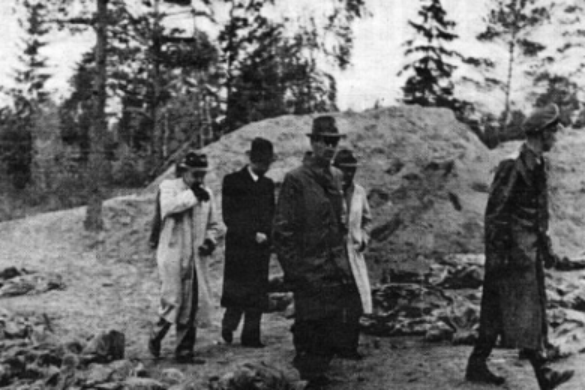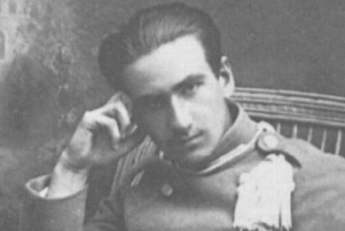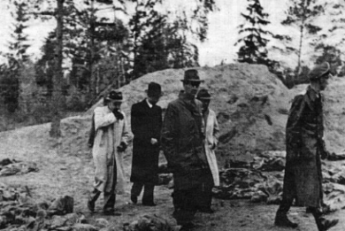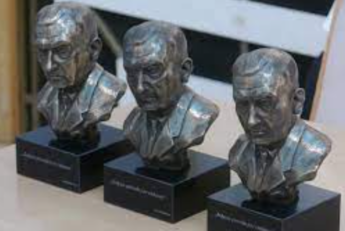
First Witness
The case of the murder of officers in Katyn left a big mark on Józef Mackiewicz’s biography. This spectacle of the uncovered crime haunted the writer until the end of his life.
The Polish authorities gave permission for Józef Mackiewicz to be part of the 50 Poles who would go to the site of the Soviet crime in Katyn. The consent for Mackiewicz to join the delegation was given by the Polish Underground State. What he saw in Katyn affected his work until the end of his life. Probably what he saw in Katyn will never be forgotten. The news that he was going to Katyn took over the writer from the first seconds.
“In my opinion, it was a momentous matter not only for me personally, but also for the whole of Poland, because undoubtedly only a few will one day stand before a tribunal or simply a court of history as a witness of this case” – said the writer.
What he saw in the Katyn forest affected him so much that he began to conduct a kind of investigation. Mackiewicz wanted to know all the details of the crime: he collected documentation, talked to nearby residents, Germans, and researched this historic, tragic event in detail.
“Every returnee takes souvenirs, Mackiewicz too. These are souvenirs that lie scattered in the Katyn forest: scraps of documents, fragments of letters, military epaulettes, the famous Katyn buttons, eagles with a crown”, said in an interview for Polish Radio prof. Tadeusz Wolsza.
After the visit to Katyn, Mackiewicz’s interview was published in “Goniec Codzienny”. The writer was accused of collaborating with the Germans, because Mackiewicz claimed that the crime was committed by Soviet soldiers. For alleged collaboration, the Polish Underground State issued a death sentence on the writer. However, the appointed persons refused to carry out this task. This did not scare the writer. Until the end of his life, he preached uncompromising views, i.e. the truth about the Katyn massacre. It was the truth that was most important to him, even if the price was life.
Until the end of his life, and Mackiewicz died in 1985, he preached the truth about the Katyn massacre. In those years, this truth was inconvenient for the communist authorities, and thus the writer was considered an anti-communist until the end of his life. He returned to the topic of the Katyn massacre not only in his books, but also in his journalism. Already in 1948, the white book “Katyn Crime in the light of documents” was published, and although he was the author of the selection, his name does not appear in the publication. A year later, the book “Katyń. Crime without trial and punishment” is published, the edition of which is reissued and translated into various languages many times.
Written by Łukasz Czunkiewicz
Translated by Joanna Zawalska
Based on:
Polskie Radio (2022): „Prof. Tadeusz Wolsza: Mackiewicz walczył o wiedzę o Katyniu”. https://www.polskieradio.pl/8/9675/artykul/2931452,prof-tadeusz-wolsza-mackiewicz-walczyl-o-wiedze-o-katyniu (dostęp 12.03.2023).
Polskie Radio (2022): „Jako jeden z pierwszych opisał zbrodnię w Katyniu. IPN upamiętnił Józefa Mackiewicza”. https://jedynka.polskieradio.pl/artykul/3059565,Jako-jeden-z-pierwszych-opisal-zbrodnie-w-Katyniu-IPN-upamietnil-Jozefa-Mackiewicza (dostęp: 12.03.2023).







